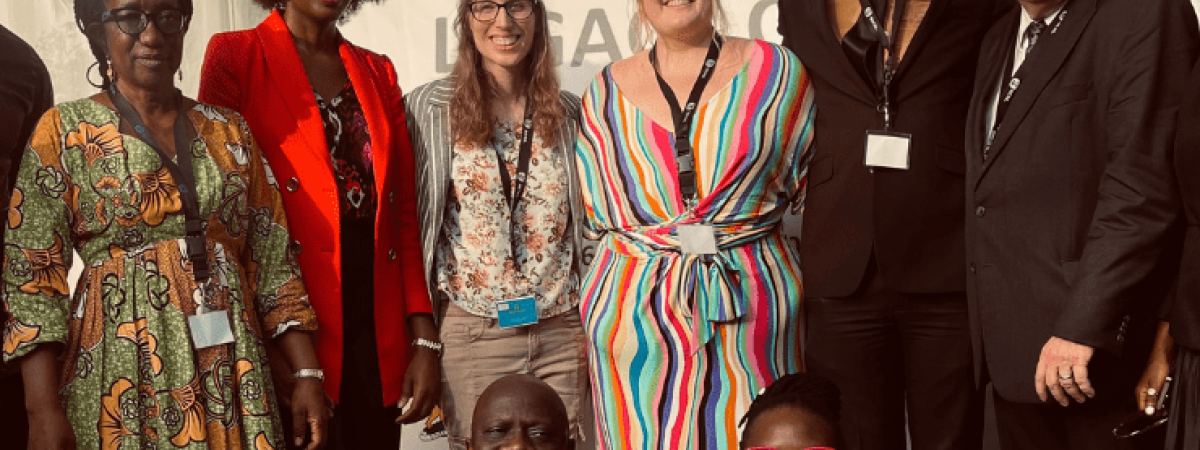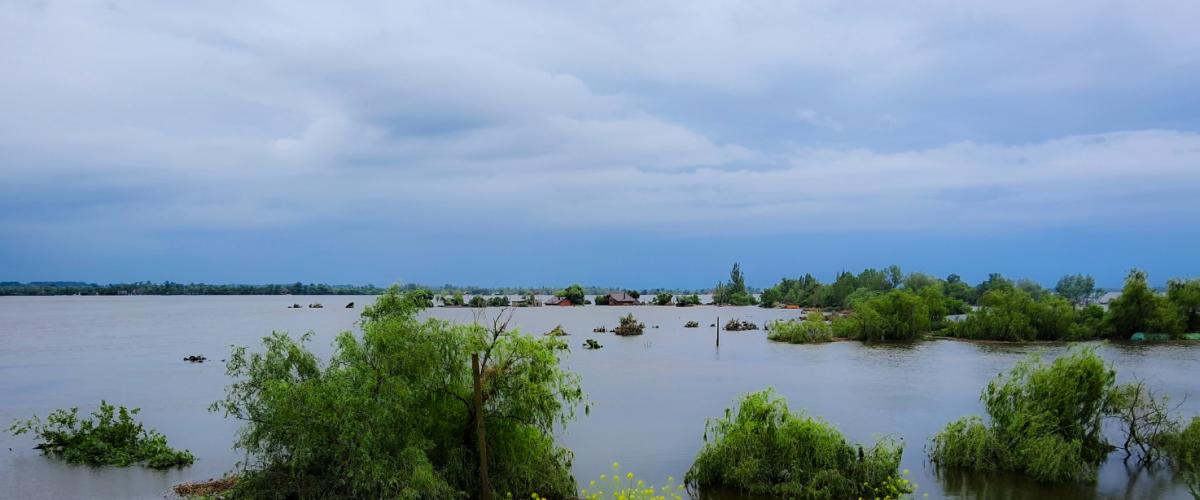3Ls Elizabeth Broderick and Harper Fox are spending their final semester of law school working for the Residual Special Court for Sierra Leone (RSCSL) as their Capstone project. In the summer of 2023, Fox and 3L Jessica Chapman worked for the RSCSL. The Chief Prosecutor of the Residual Special Court for Sierra Leone is James C. Johnson, adjunct Professor of Law and Director of the Henry T. King War Crimes Research Office at Case Western Reserve University School of Law.
All three students had the once-in-a-lifetime opportunity to help organize and attend the Legacy Conference to Raise Awareness of the Contributions of the Special Court for Sierra Leone to International Justice, Peace and Security, in Freetown, Sierra Leone, this February. The historic conference was held to emphasize the impact of the SCSL and RSCSL on international criminal law jurisprudence, outreach programs to communities across Sierra Leone and memorialization and transitional justice.
“This conference had a tremendous impact on my perspective of this work,” Fox said. “Never before was I able to meet so many people who personally witnessed and suffered atrocity violence. It was so meaningful to hear their stories; to hear about a mother whose child was born to a rebel father out of rape, to meet someone whose hands I couldn’t shake because he didn’t have them anymore. To see the strength of victim survivors in sharing their stories and observing their dedication to learning about international criminal justice gives me hope that more courts like the SCSL can be created in Africa and around the world to deliver justice for these incredibly courageous people.”
The conference began with a victims and survivors focus group, where people from around the subregion traveled to Freetown to tell their stories of experiencing atrocity crimes, how they continue to suffer from problems in their countries and to share ideas on how to mobilize civil society, women’s organizations and youth groups in their home countries. The next morning, an opening ceremony full of impactful personalities in the field, such as Judge Ekaterina Trendafilova (President of the Kosovo Specialist Chambers), Karim Khan (Prosecutor of the International Criminal Court), Stephen Mathias (Assistant Secretary-General for Legal Affairs of the United Nations) and Mohamed Juldeh Jalloh (Vice President of Sierra Leone). The speakers all complimented the SCSL for its work in solidifying forced marriage and the use of child soldiers as crimes against humanity, often cited by other international criminal mechanisms. They also emphasized the need for the RSCSL to continue educating the youth of Sierra Leone, who did not live through the civil war. They highlighted the accomplishments of the R/SCSL in reaching local communities through outreach and in building a robust witness and victim protection network that was trauma–informed and empowered women victims and survivors.
“This week in Freetown has been transformational to say the least,” Chapman said. “The opportunity to take the education I’ve obtained, along with the work I’ve done in The Hague, and contextualize it in Sierra Leone, where the conflict took place, has taken me from the theoretical academic world to engaging with Sierra Leonean stakeholders in Freetown who are victim survivors of wartime violence. To see the resilience of Sierra Leoneans and their continued pursuit for justice and lasting peace has further inspired me to continue on a career path in international law where I can utilize my skill set to amplify the voices of survivors of international crimes.”
The majority of the conference was in a panel format, with panel topics such as the legal legacy of the SCSL, transitional justice efforts across the region, judicial capacity building, outreach and witness and victim protection, memorialization, and the future of international tribunals. All three students got the opportunity to sit in on all of these panels to take notes, which will be used for the proceedings of this conference to come out in March. Overall, the conference was a great success that brought together local, regional and international experts in the field of international criminal law and transitional justice, and most importantly, inspired others, from Uganda to Ukraine, on how to pursue justice for the crimes committed against them and their communities from lessons learned at the SCSL.
“I enjoyed hearing from both human rights law professionals and the impacted individuals at once, because the blended conversation felt anchored in productive, intentional, realistic solutions,” Broderick remarked. “This brought a certain gravity to the entire proceedings. It is difficult to approach human rights as an esoteric philosophical topic when the people needing the rights better protected are in the room with you. The entire Legacy Conference experience broadened my cultural awareness, and I hope made me forever more inclusive of the perspectives and needs of the West African region in my work.”





